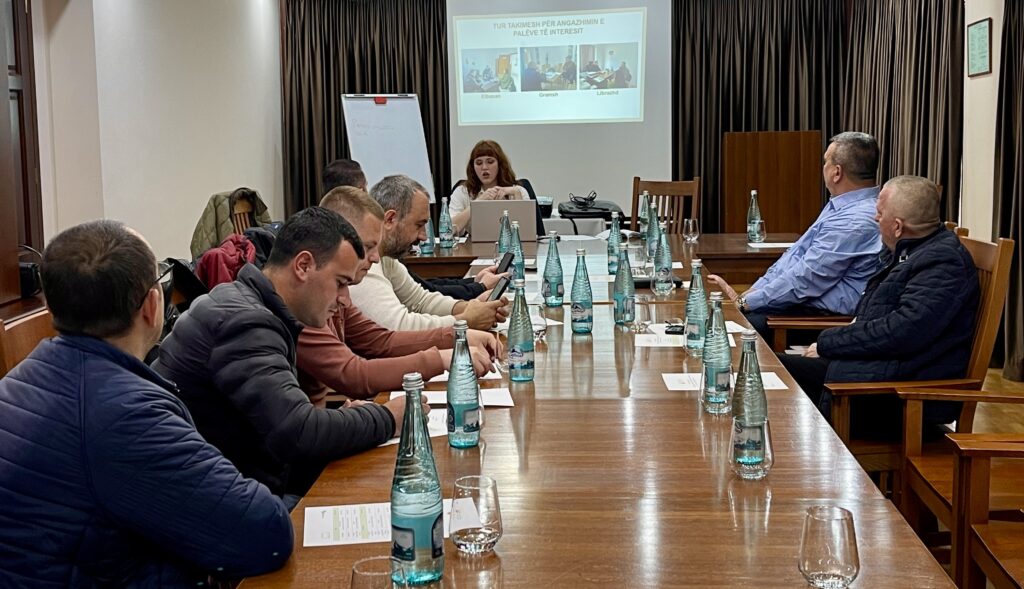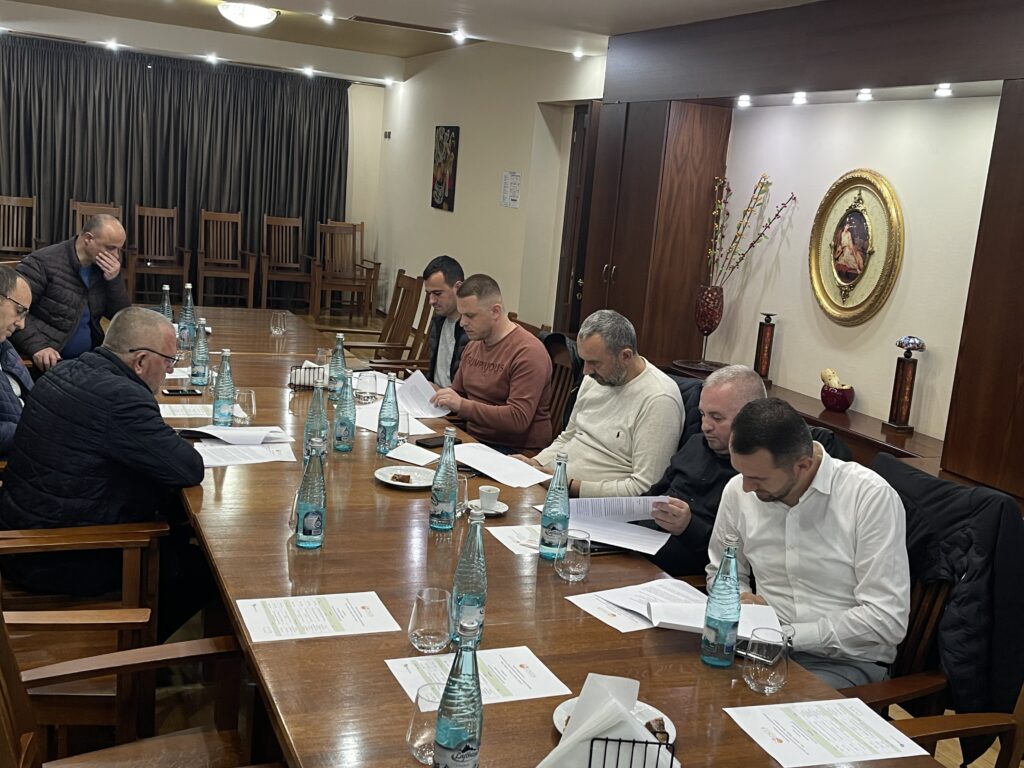On March 26, the second meeting of the Steering Committee of the ISCCA project (Sustainable Management of Ecological Corridors in the Polis-Valamarë-Rungaje-Moravë-Gramoz area) was held. This is an important initiative for biodiversity conservation and sustainable management of natural ecosystems in this environmentally valuable region. The meeting was organized with the participation of representatives from the Prefecture of Elbasan, the Regional Administration of Protected Areas (RAPA), representatives of the respective municipalities, and experts from the University of Elbasan.


During this meeting, EcoAlbania presented the final version of the Action Plan for the project, a strategic document that outlines the measures and planned activities to ensure the protection and sustainable development of the areas included in the project. The Action Plan will serve as a roadmap for implementing activities in the upcoming period, aiming to strengthen cooperation mechanisms and enforce effective policies for nature conservation.
A key point in this discussion was the review and improvement of the Memorandum of Understanding (MoU) among various institutional actors and organizations involved in the project. This agreement aims to strengthen the partnership between local and regional institutions, enabling better coordination of efforts for environmental protection and sustainable development.
The meeting also addressed the next steps for achieving the project’s objectives, including raising environmental awareness about the role of the ecological corridor, promoting sustainable resource use practices, integrating concepts of ecological connectivity, ecosystem services, and nature-based solutions into municipal strategies and territorial planning, as well as involving the community in decision-making processes during the implementation phase of the Connectivity Conservation Area (CCA) “Polis-Valamarë-Rungaje-Moravë-Gramoz” action plan.
Through this close cooperation and joint efforts, the ISCCA project is making concrete progress toward achieving its objectives. The conservation and sustainable management of ecological corridors in this region is a key priority to ensure a greener and more sustainable future for future generations.








